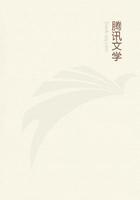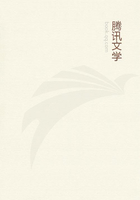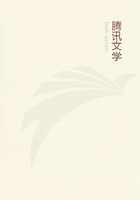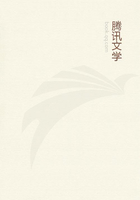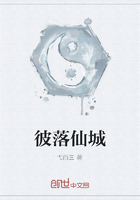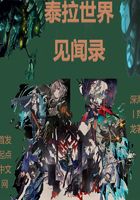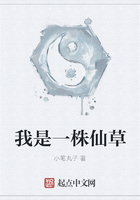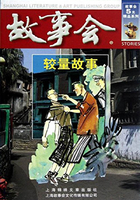Shortly after the close of the session I was invited to give the Phi Beta Kappa address at the Yale commencement, and as the question of the reconstruction of the Union at the close of the war was then the most important subject before the country, and as it seemed to me best to strike while the iron was hot, my subject was ``The Greatest Foe of Republics.'' The fundamental idea was that the greatest foe of modern states, and especially of republics, is a political caste supported by rights and privileges. The treatment was mainly historical, one of the main illustrations being drawn from the mistake made by Richelieu in France, who, when he had completely broken down such a caste, failed to destroy its privileges, and so left a body whose oppressions and assumptions finally brought on the French Revolution.
Though I did not draw the inference, I presume that my auditors drew it easily: it was simply that now, when the slave power in the Union was broken down, it should not be allowed to retain the power which had cost the country so dear.
The address was well received, and two days later there came to me what, under other circumstances, I would have most gladly accepted, the election to a professorship at Yale, which embraced the history of art and the direction of the newly founded Street School of Art. The thought of me for the place no doubt grew out of the fact that, during my stay in college, I had shown an interest in art, and especially in architecture, and that after my return from Europe I had delivered in the Yale chapel an address on ``Cathedral Builders and Mediaeval Sculptors''
which was widely quoted.
It was with a pang that I turned from this offer. To all appearance, then and now, my life would have been far happier in such a professorship, but to accept it was clearly impossible. The manner in which it was tendered me seemed to me almost a greater honor than the professorship itself. I was called upon by a committee of the governing body of the university, composed of the man whom of all in New Haven I most revered, Dr. Bacon, and the governor of the State, my old friend Joseph R.
Hawley, who read to me the resolution of the governing body and requested my acceptance of the election.
Nothing has ever been tendered me which I have felt to be a greater honor.
A month later, on the 28th of August, 1866, began at Albany what has been very rare in the history of New York, a special session of the State Senate:--in a sense, a court of impeachment.
Its purpose was to try the county judge of Oneida for complicity in certain illegal proceedings regarding bounties.
``Bounty jumping'' had become a very serious evil, and it was claimed that this judicial personage had connived at it.
I must confess that, as the evidence was developed, my feelings as a man and my duties as a sworn officer of the State were sadly at variance. It came out that this judge was endeavoring to support, on the wretched salary of $1800 a year allowed by the county, not only his own family, but also the family of his brother, who, if I remember rightly, had lost his life during the war, and it seemed to me a great pity that, as a penalty upon the people of the county, he could not be quartered upon them as long as he lived. For they were the more culpable criminals. Belonging to one of the richest divisions of the State, with vast interests at stake, they had not been ashamed to pay a judge this contemptible pittance, and they deserved to have their law badly administered. This feeling was undoubtedly wide-spread in the Senate; but, on the other hand, there was the duty we were sworn to perform, and the result was that the judge was removed from office.
During this special session of the State Senate it was entangled in a curious episode of national history. The new President, Mr. Andrew Johnson, had been induced to take an excursion into the north and especially into the State of New York. He was accompanied by Mr. Seward, the Secretary of State; General Grant, with his laurels fresh from the Civil War; Admiral Farragut, who had so greatly distinguished himself during the same epoch, and others of great merit. It was clear that Secretary Seward thought that he could establish the popularity of the new administration in the State of New York by means of his own personal influence; but this proved the greatest mistake of his life.
On the arrival of the presidential party in New York City, various elements there joined in a showy reception to them, and all were happy. But the scene soon changed.
From the city Mr. Seward, with the President, his associates, and a large body of citizens more or less distinguished, came up the Hudson River in one of the finest steamers, a great banquet being given on board. But on approaching Albany, Mr. Seward began to discover his mistake; for the testimonials of admiration and respect toward the President grew less and less hearty as the party moved northward. This was told me afterward by Mr.
Thurlow Weed, Mr. Seward's lifelong friend, and probably the most competent judge of such matters in the United States. At various places where the President was called out to speak, he showed a bitterness toward those who opposed his policy which more and more displeased his audiences. One pet phrase of his soon excited derision. The party were taking a sort of circular tour, going northward by the eastern railway and steamer lines, turning westward at Albany, and returning by western lines; hence the President, in one of his earlier speeches, alluded to his journey as ``swinging round the circle.''
The phrase seemed to please him, and he constantly repeated it in his speeches, so that at last the whole matter was referred to by the people at large, contemptuously, as ``swinging round the circle,'' reference being thereby made, not merely to the President's circular journey, but to the alleged veering of his opinions from those he professed when elected.

